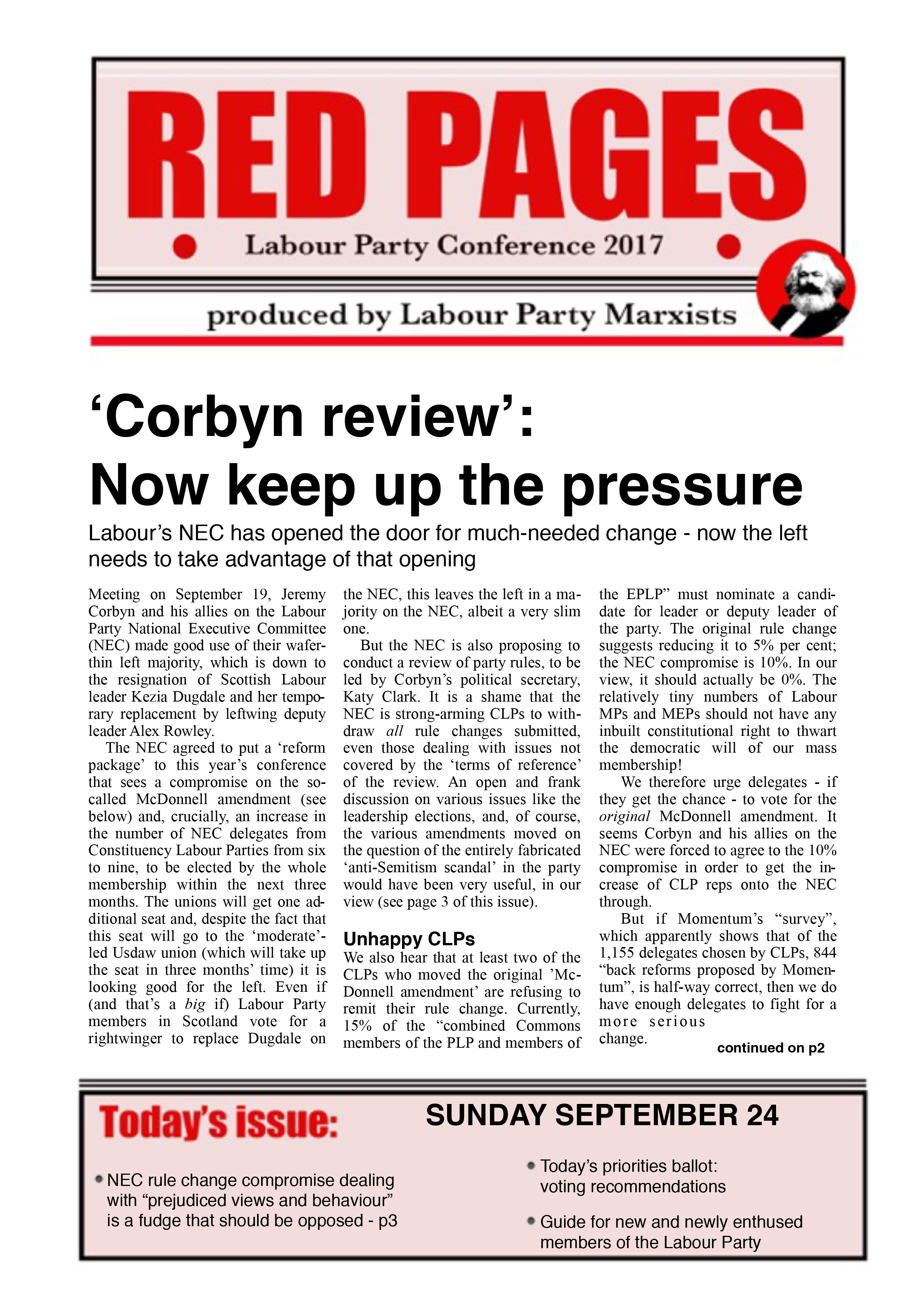It is not often we listen to Labour deputy leader Tom Watson with interest. But in an interview this week he reminded us that the civil war in the Labour Party is very much alive and kicking.
He simply cannot understand that his former flatmate, Unite leader Len McCluskey, seems to have turned his back on him. “Sadly, we fell out over that week when Jeremy went into the second leadership election, and I’ve not spoken to him since that week.”
“When Jeremy went into the second leadership election”… well, that is certainly an interesting way of describing a full-on coup, which had none other than Tom Watson among its instigators, of course. And just because of that silly little coup his old mate McCluskey is apparently now “coming for me”:
He’s powerful enough, if he wants to take me out as deputy leader, he probably could, but that’s up to him. They’re upping their delegates and all of that. I’m just going to get on and try to bring everyone back together and do what I can, as best I can.
Sure you are, Tom. You’re all about unity. And just like the rest of the right wing in the party, you tend to appeal for it when your own career prospects might be under threat.
Watson seems to say that McCluskey is getting his own Unite troops ready to challenge him for his role as deputy leader. Just like for leader of the party, there are no regular elections for deputy leader. The incumbent either has to die, resign – or be challenged.
Of course – and Watson knows this very well – affiliated unions play no role at all when it comes to such a challenge. Potential candidates need the support of “20% of combined Commons members of the Parliamentary Labour Party and members of the European Parliamentary Labour Party” before they can make it onto the ballot paper.
So the fact that Unite is “upping their delegates and all of that” has no relevance to there being an active challenger to Tom Watson – or not (needless to say, in our view there definitely should be a challenge – the man is a rightwing backstabber par excellence). Rather Watson is speaking here as a kind of representative of the whole ‘moderate’ right in the party and particularly in the PLP. There have indeed been moves by a number of unions and affiliated organisations to increase the number of branches affiliated to local CLPs – and not just by the left. The Jewish Labour Movement, for example, has approached pretty much all CLPs. The difficulty these national affiliates have is proving that they indeed “have members who are registered as electors within the constituency”, which is the main requirement for local affiliation.1)Labour Party rulebook 2018, chapter 7, clause III, point 2. See http://labourpartymarxists.org.uk/wp-content/uploads/Labour-Party-Rule-Book-Labour-Party-2018-Rule-Book.pdf.
Once they are affiliated to a CLP, those local affiliates could play an important role in the highly undemocratic trigger ballot – currently the only way that you can get rid of an MP. If the sitting MP wants to stand again, all the constituency’s Labour Party branches and its local affiliates have a single vote each. Each branch and each affiliate is counted equally, irrespective of the number of its members. If a simple majority of branches/affiliates votes ‘yes’, the sitting MP automatically becomes the official candidate. A full selection procedure only takes place if a majority of branches/affiliates votes ‘no’ at this stage. Then, every Labour Party member casts a vote (the affiliated organisations are not involved at this stage of the process).
Reselection
In other words, Tom Watson is warning Len McCluskey not to challenge rightwing MPs like himself on a local level. His intervention is no doubt also designed to see off the lame proposal for a slight reform of the trigger ballot procedure. Despite the fact that Jon Lansman has campaigned for the mandatory reselection of parliamentary candidates for decades (it was, after all, the main demand of the Campaign for Labour Party Democracy, in which he played a leading role), he has now dropped it and merely calls for raising the threshold from 50% to 66% – ie, two-thirds of the local branches and affiliates have to vote ‘yes’ to a sitting MP, otherwise a full selection process begins.
But this still disproportionately favours the sitting MP: rather than allowing for a full and democratic automatic reselection process before every election, a sitting MP would still have to be challenged. Lansman’s tinkering would merely restore the trigger ballot to what it was when it was introduced by Neil Kinnock in 1990 in order to curb the power of the unions, before Tony Blair reduced it to today’s 50%. Lansman here appears to be following the lead of Jeremy Corbyn, who has declared that nowadays he is not in favour of mandatory reselection.
In this context, we are very pleased to see a much more radical rule change going forward to this year’s conference from International Labour – the party unit to which party members living abroad belong. IL is putting a deal of energy and effort into publicising the motion, no doubt in order to stop it from being ruled out of order, or batted aside by the conference arrangements committee in favour of Jon Lansman’s lame proposal.
The rule change by IL simply removes the whole trigger ballot process. While the trade unions currently have no role in the local selection process of parliamentary candidates, this would also remove their role in potentially blocking reselection. Having said that, it is clearly a huge and important step in the right direction towards transforming Labour into a real party of labour. MPs must become truly accountable to the membership.
Unite actually voted in favour of mandatory reselection at the union’s policy conference in 2017. The motion read:
MPs have not got ‘jobs for life’. They represent their constituency, but ultimately they are selected by and accountable to their Constituency Labour Party. To ensure democratic accountability and the rights of party members to select candidates that reflect their views, conference supports the need for mandatory reselection of Labour MPs in each parliament as essential.
Should Len McCluskey get behind IL’s motion, there is a real chance it might actually go through.
LRC and Gordon
Unfortunately, Jeremy Corbyn is still trying to appease the right in the party. Presumably, he thinks of himself as playing the long game, in which he will eventually emerge as prime minister, running a leftwing Labour government and bringing to fruition his neo-Keynesian, nationalist programme. Strategically, he is therefore trying to concentrate on ‘bread and butter issues’ like the NHS and austerity, while ‘sitting out’ more complex questions like democratisation, as well as Brexit, etc.
When it comes to even more tricky questions like the fabricated ‘anti-Semitism’ scandal in the party, he has chosen the path of least resistance: he says he will deal with the ‘problem’. So having replaced general secretary Iain McNicol with the more leftwing Jennie Formby, she was told to put on a show of combating anti-Semitism and not to object when Labour members are suspended or expelled on trumped-up charges.
His appointment of Gordon Nardell as ‘in-house QC’ to deal with disciplinary matters looks similarly good on paper. Nardell is a founding member of the Labour Representation Committee, where he was tasked, among other things, with rewriting the organisation’s disciplinary procedures. Nardell has come under quite a lot of scrutiny from the rightwing media and has quickly deleted his social media accounts – not quickly enough, mind. He has been ‘outed’ as having been a Facebook friend of Tony Greenstein (who cannot recall ever meeting or communicating with him) and having made a couple of comments in support of Jackie Walker.
The Labour Party has also confirmed that in his new job Nardell will be working with the definition of anti-Semitism published by the International Holocaust Remembrance Alliance – but not the 11 examples that come with it, as an outraged Jewish Chronicle reports. The examples are, of course, the crux of the matter, as they conflate criticism of Israel and Zionism with anti-Semitism.
There has been a lot of confusion over this definition and which part was adopted at last year’s Labour conference. The Jewish Labour Movement claimed that the party accepted the definition plus the examples, and the Board of Deputies has tried to get Jeremy Corbyn to confirm that. Marc Wadsworth’s disciplinary hearing even had to be adjourned so that Labour Party lawyers could go away and find out what the party had adopted.
In a sense, of course, this is pretty academic – it all depends on who is enforcing the rules and to what purpose. Marc Wadsworth, we should remember, was not expelled for anti-Semitism, but for the catch-all crime of “bringing the party into disrepute”. But it is an important and very welcome sign that Nardell has come out in opposition to the IHRA examples.
We welcome Nardell’s appointment and hope that he – and Corbyn – will stand firm against the ongoing smear campaign against him and his ‘friends’, even if they are mere online acquaintances. By endorsing what could be viewed as a highly political appointment, Corbyn does, of course, implicitly acknowledge that there is a civil war going on. It is just that he is trying to win it by stealth, rather than having the argument out in the open. That is a very dangerous game.
For example, Corbyn probably thinks he is being clever by meeting with the Board of Deputies without making any public concessions. But the mere fact he has met them – and at the same time continues to refuse to meet the comrades from Jewish Voice for Labour – means that he has given way politically.
He says nothing about Jackie Walker, Tony Greenstein, Marc Wadsworth and the hundreds of others. He says nothing when Stan Keable is sacked from his job by a Labour-run council for stating that the Zionist movement collaborated with the Nazi regime – a historical, if inconvenient, fact. He says nothing even when his old comrades and allies, Christine Shawcroft and Ken Livingstone, are in the firing line – quite the opposite. He urges them to resign. He has, therefore, become complicit in the right’s campaign against his own supporters.
But, no matter how many more pawns he sacrifices in this long game, he is very unlikely to win it. Even if Corbyn should become the next prime minister (and it is a big if, for a number of reasons) he would still be surrounded by a PLP whose members are mostly sworn enemies. In fact, the methods used against ‘prime minister Corbyn’ – if he were permitted to get that far – would make the ‘anti-Semitism’ smear campaign look pretty tame. Why on earth would the PLP suddenly shut up and support Corbyn? Under these circumstances, it is a self-defeating and utterly hopeless strategy to seek ‘unity’ with the right – the last three years have demonstrated that they are not about to give up.
References
| ↑1 | Labour Party rulebook 2018, chapter 7, clause III, point 2. See http://labourpartymarxists.org.uk/wp-content/uploads/Labour-Party-Rule-Book-Labour-Party-2018-Rule-Book.pdf. |
|---|
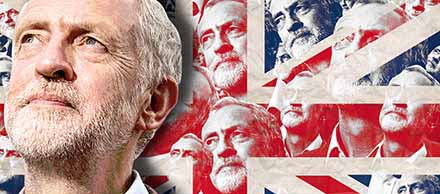
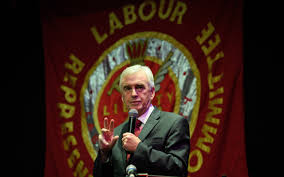
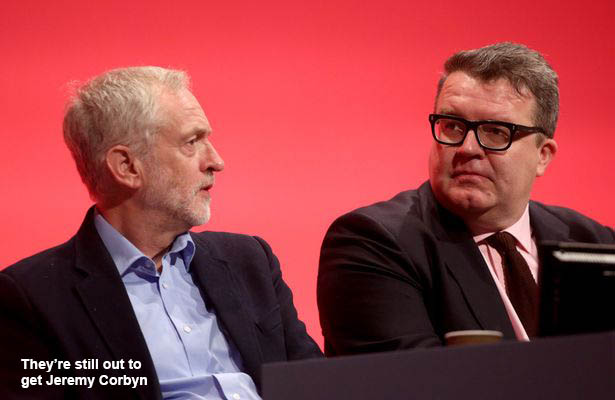
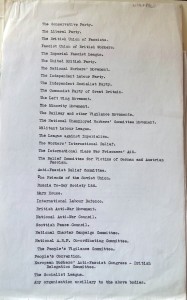 Labour has not had an official list of proscribed organisations since 1973. In 1930, the party leadership produced its first ‘proscribed list’, squarely aimed at the Communist Party of Great Britain, which included organisations and unions influenced by the CPGB.
Labour has not had an official list of proscribed organisations since 1973. In 1930, the party leadership produced its first ‘proscribed list’, squarely aimed at the Communist Party of Great Britain, which included organisations and unions influenced by the CPGB.
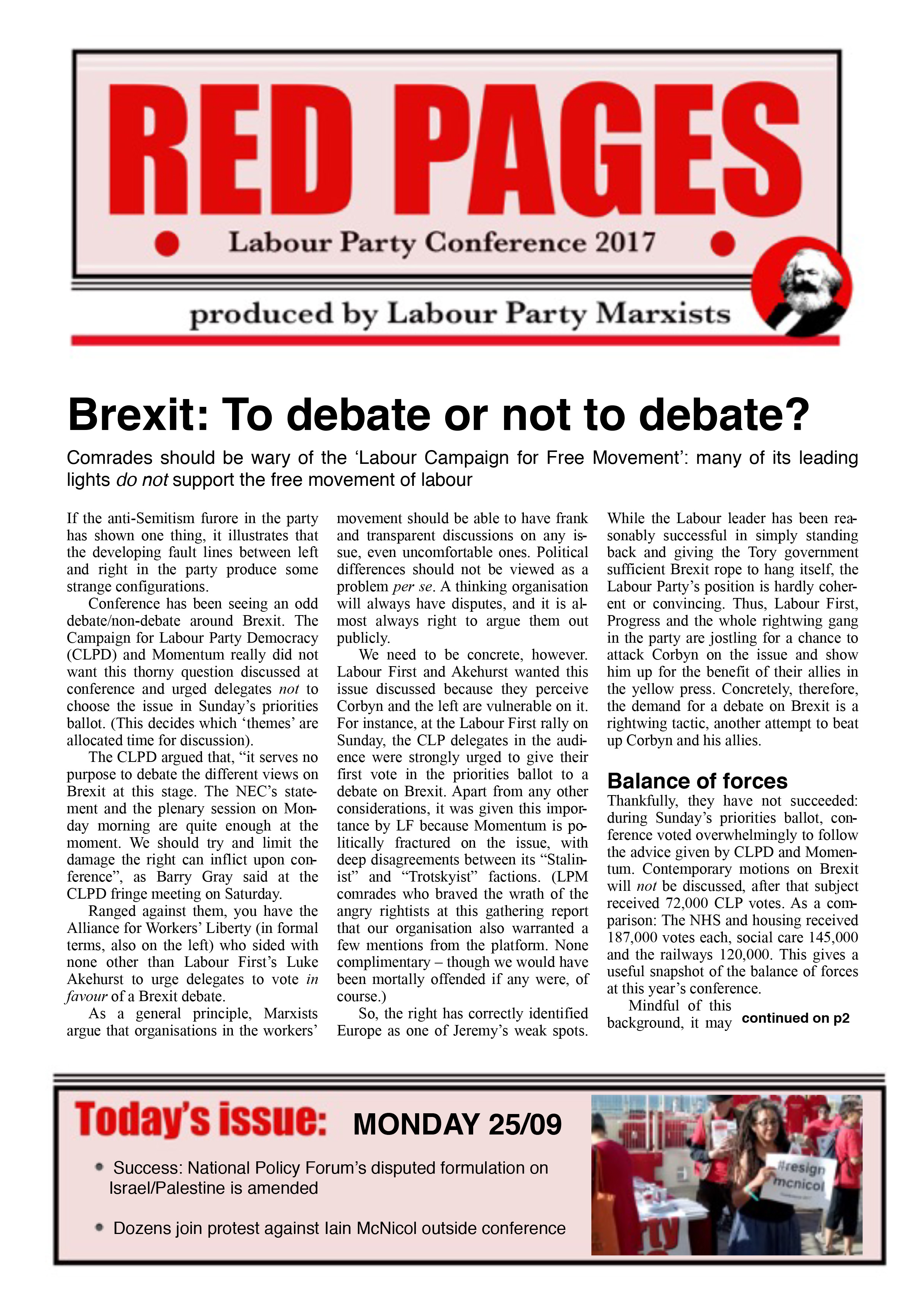
 We need to be concrete, however. Labour First and Akehurst wanted this issue discussed because they perceive Corbyn and the left are vulnerable on it. For instance, at the Labour First rally on Sunday, the CLP delegates in the audience were strongly urged to give their first vote in the priorities ballot to a debate on Brexit. Apart from any other considerations, it was given this importance by LF because Momentum is politically fractured on the issue, with deep disagreements between its “Stalinist” and “Trotskyist” factions. (LPM comrades who braved the wrath of the angry rightists at this gathering report that our organisation also warranted a few mentions from the platform. None complimentary – though we would have been mortally offended if any were, of course.)
We need to be concrete, however. Labour First and Akehurst wanted this issue discussed because they perceive Corbyn and the left are vulnerable on it. For instance, at the Labour First rally on Sunday, the CLP delegates in the audience were strongly urged to give their first vote in the priorities ballot to a debate on Brexit. Apart from any other considerations, it was given this importance by LF because Momentum is politically fractured on the issue, with deep disagreements between its “Stalinist” and “Trotskyist” factions. (LPM comrades who braved the wrath of the angry rightists at this gathering report that our organisation also warranted a few mentions from the platform. None complimentary – though we would have been mortally offended if any were, of course.)
